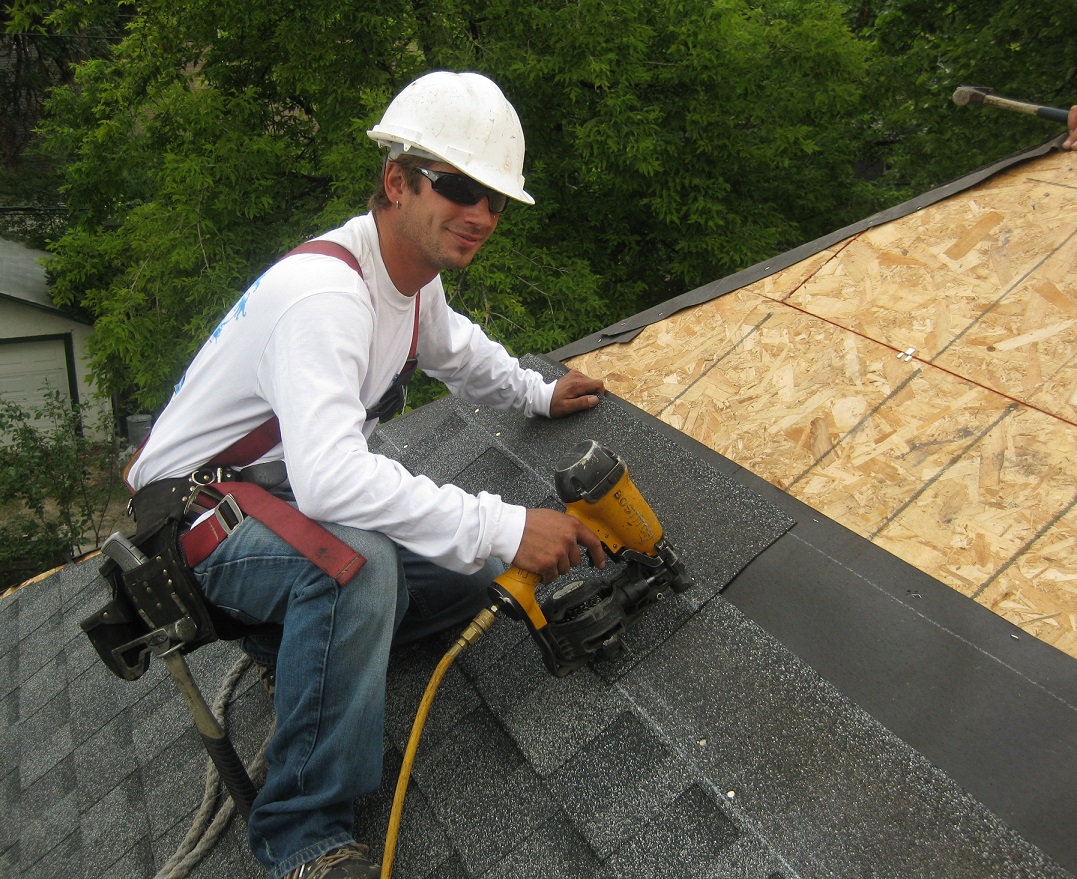Back Injuries Compensation Following Roofing Accidents At Work

Roofing companies are particularly liable to seeing their workers make back injury compensation claims – jobs in the industry frequently see members of staff working at height, which is inherently dangerous, as falls from height can see people suffer serious personal injuries.
Nonetheless, some roofing contractors ignore health and safety regulations, putting their employees at great risk unnecessarily. Falls from height do not just cause back injury compensation cases – they represent one of the biggest causes of death in the UK’s workplaces.

And these dangers are particularly pronounced because of some of the unique dangers posed by roof work. Sometimes, people use fragile materials, such as asbestos cement roofing sheets or roof lights, which can break and lead staff to suffer personal injuries.
Although the dangers of working at height are common knowledge within the industry, failures to adhere to health and safety regulations are still seen with dull regularity. Aston Roofing North West Limited, a roofing company based in Merseyside, was recently fined for compensation claims for accident at work, of £1,000 with costs of £100 at a hearing at Mold Magistrates’ Court on May 10th, after it had been found to have put its workers in serious danger through working at height failures.
Staff was removing asbestos cement roof sheets and replacing them with metal roof cladding on light industrial units in Deeside when an off-duty Health and Safety Executive (HSE) inspector noticed two workers were completing this task dangerously. The company had not put any safeguards in place that could reduce the likelihood of workers falling from height – an untied ladder was being used to access the roof, there was nothing at the edge of the roof to prevent staff falling off the side and no devices had been used to stop staff falling through the roof. Employees were between four and five metres from the floor – a fall from height could have led to far more tragic consequences than back injuries compensation payouts.
A prohibition notice was served against the company, which stopped work from continuing until health and safety regulations had been adhered to and the safety of workers could be guaranteed. The company admitted its failings in the hearing, and Chris Wilcox, HSE Inspector, suggested that this prosecution should remind other building contractors to take care to properly plan working at height and to ensure safety precautions are taken.
It is very fortunate that nobody was injured on this roofing job, he remarked.
How can I ensure my staff do not have accidents at work and make back injuries compensation claims?
There are a number of health and safety regulations and guidelines that can minimise the likelihood of staff falling from height. It is recommended that employers ask a number of questions when risk assessing roofing jobs, including considering how high workers will be from the ground, or whether access equipment will be strong enough to handle the weights of staff and their tools.
The ground surface should also be a consideration – access equipment might not be stable on muddy, uneven, swampy or sloping ground, for instance. Weather conditions can also be a risk factor – work will be more dangerous if it is icy, windy or rainy, and could be called off in such situations. Alternatively, additional safety equipment such as harnesses can help to minimise the risk of these conditions.
Staff training is an essential part of preventing back injuries compensation claims and accidents in the workplace. The people who complete this work must be adequately skilled and should know what they are doing, so they can complete the job safely.
It is also recommended that people do not spend longer than 30 minutes working from a ladder at any one time – as a result, it is important that employers ensure their workers take frequent breaks. While these factors increase the risk of a fall from height, the repetitive movements, uncomfortable positions and stretching seen in roofing jobs also cause people to strain the muscles in their back, which can lead to compensation claims for back injury.
Planning is always vital for any hazardous work, and employers must ensure they plan work carefully and effectively. This will include considering the safe securing of ladders or access equipment, providing personal protective equipment to employers, and considering whether or not any part of the work can be successfully completed from the ground.
Behind every back injury compensation case is a personal tragedy that could have been prevented through consideration of health and safety. Businesses must do all they can to protect their workers, and this is particularly apparent in the roofing trade. Proper safety measures can almost eliminate the chance of staff having an accident at work.
